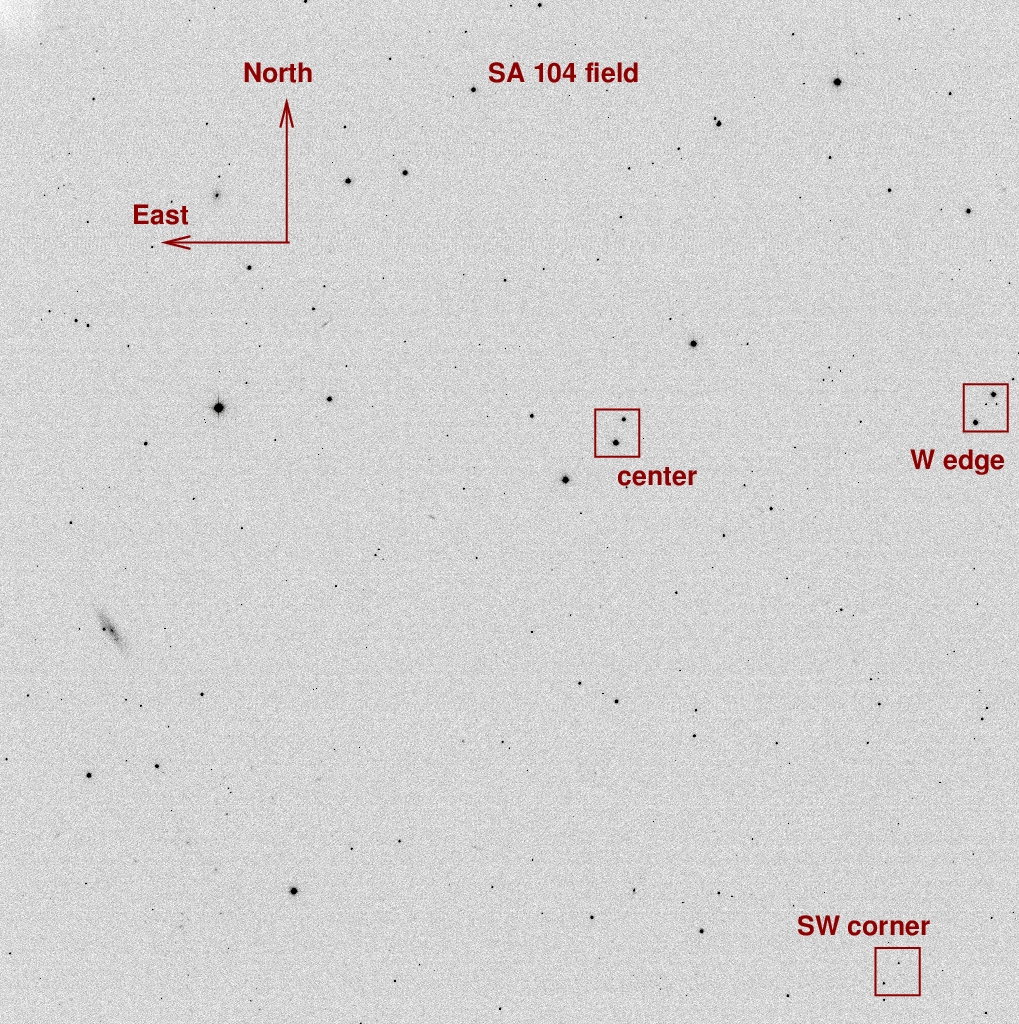
Contents:
On the night of UT 2016 Feb 11, Con Deliyannis kindly took a series of images of the field SA 104 over a wide range of focus values. This brief report shows visually some results of those tests.
The images can be found on the HDI datastore on night 20160211. The images are:
name focus position --------------------------------------------- c7429t0156o00.fits 32551 c7429t0157o00.fits 31051 c7429t0158o00.fits 31151 c7429t0159o00.fits 31252 c7429t0160o00.fits 31349 c7429t0161o00.fits 31452 c7429t0162o00.fits 31550 c7429t0163o00.fits 31654 c7429t0164o00.fits 31750 c7429t0165o00.fits 31851 c7429t0166o00.fits 31951 c7429t0167o00.fits 32052 c7429t0168o00.fits 32151 c7429t0169o00.fits 32251 c7429t0170o00.fits 32351 c7429t0171o00.fits 32451 c7429t0172o00.fits 32451 c7429t0173o00.fits 32552 c7429t0174o00.fits 32655 c7429t0175o00.fits 32751 c7429t0176o00.fits 32851 c7429t0177o00.fits 32951 c7429t0178o00.fits 32952 c7429t0179o00.fits 33062 c7429t0180o00.fits 33151 c7429t0181o00.fits 33251 c7429t0182o00.fits 33356 c7429t0183o00.fits 33451 c7429t0184o00.fits 33552 c7429t0185o00.fits 33651 c7429t0186o00.fits 33752 c7429t0187o00.fits 33951 c7429t0188o00.fits 34052 ---------------------------------------------
As you can see, the sequence moves in steps of about 100 units, from roughly 1500 units below the best focus (which was near 32550) to roughly 1500 units above the best focus.
All images and subimages below are reproduced in the standard orientation: North up, East left.
First, here's a picture showing the full field close to focus. That best focus yielded a FWHM = 3.3 pixels = 1.4 arcsec, which is typical in my experience. I'll zoom in on the three marked boxes later.

Let's begin by examining the PSF of stars in each of the three marked boxes over the full range of the focus values: from -1500 to +1500. In the mosaics below, small "postage stamps" for each box will be shown, with steps of +200 units in focus between each stamp. The focus values start at lowest in upper left, then increase from left-to-right and then upper-to-lower.
31050 -> 31250 -> 31450 -> 31650
31850 -> 32050 -> 32250 -> 32450
32650 -> 32850 -> 33050 -> 33250
33450 -> 33650 -> 33850 -> 34050
We begin with the "center" box.
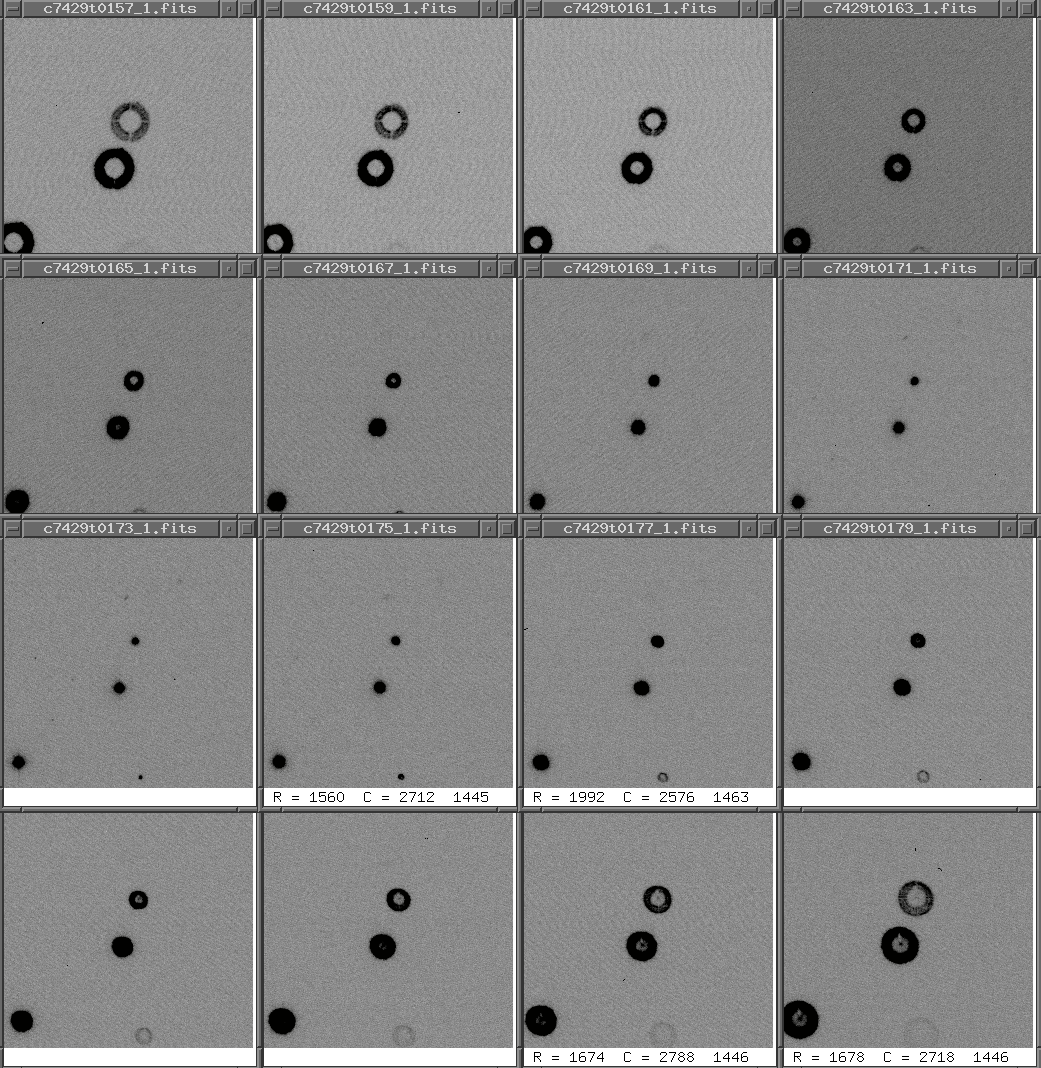
When very far from focus in either direction, each "donut" have a reasonably, but not perfectly, centered hole. The north-western edges of the donut are slightly brighter than the others.
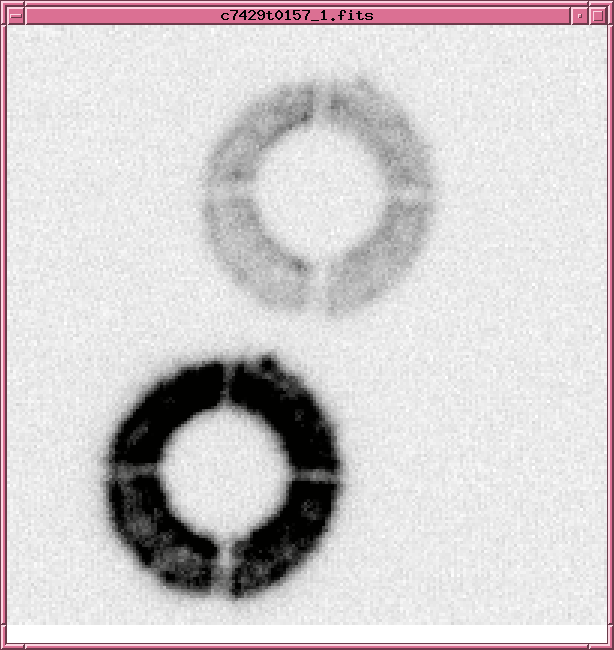
The pattern is similar for stars in the "West edge" box ...
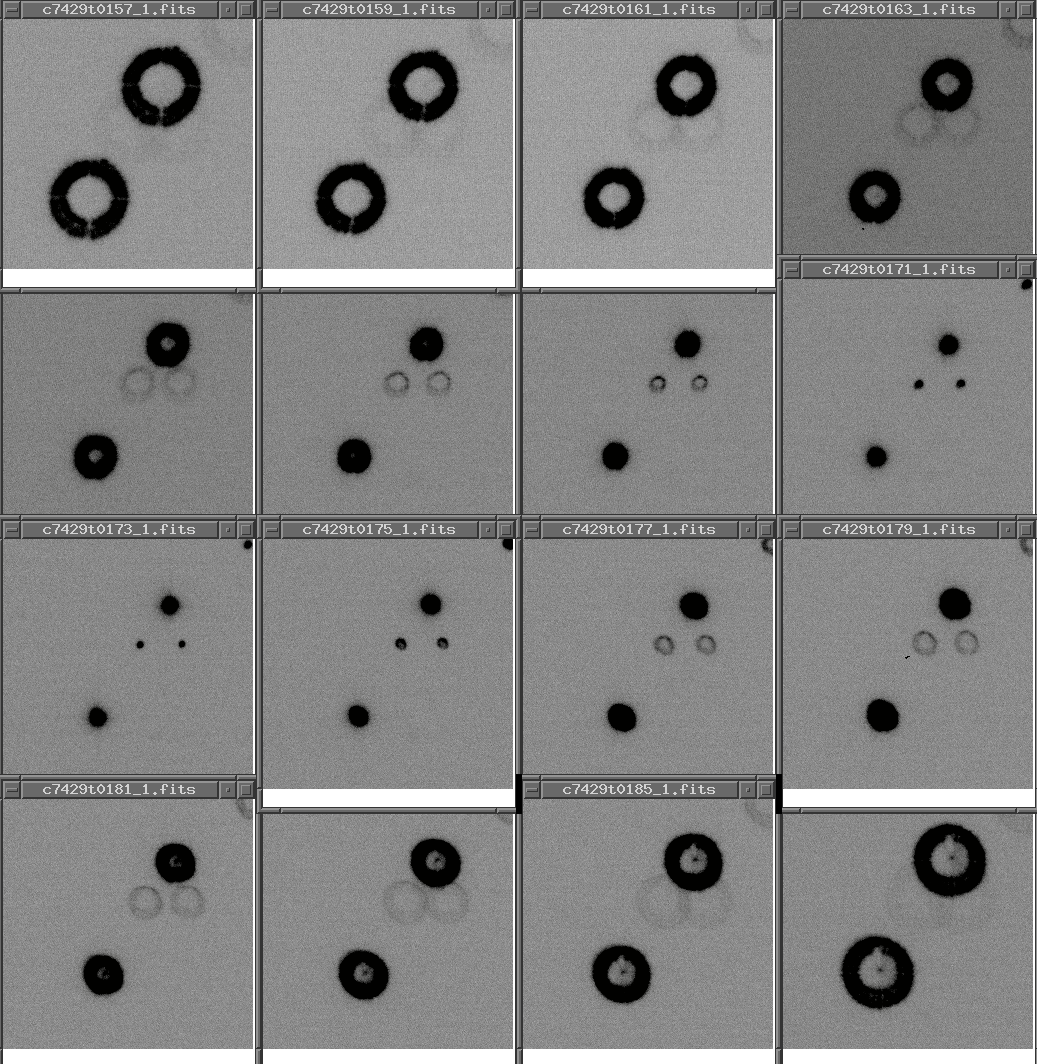
... and for stars in the "SouthWest corner" box,
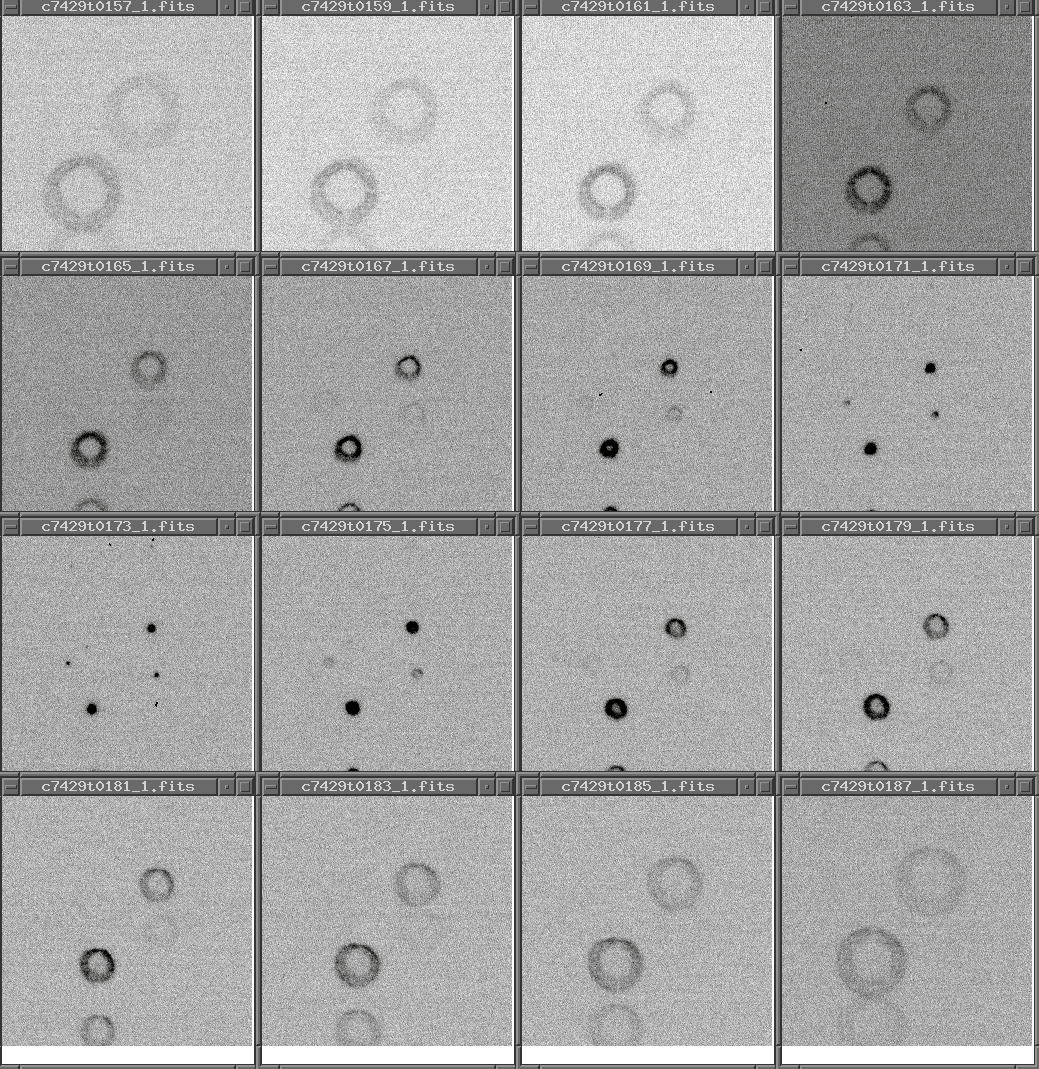
My conclusion from this test: the CCD is pretty well aligned perpendicular to the optical axis. Good.
To check for astigmatism, we can look at images which are slightly out of focus on both sides of the best focus position. If the PSF rotates by 90 degrees as we move from below-focus to above-focus, then there is some astigmatism.
Now, in this case, the images shown cover only the central range of focus values: starting at image 0168 = focus 32151, and proceeding in steps of about +100, ending with image 0179 = focus 33062.
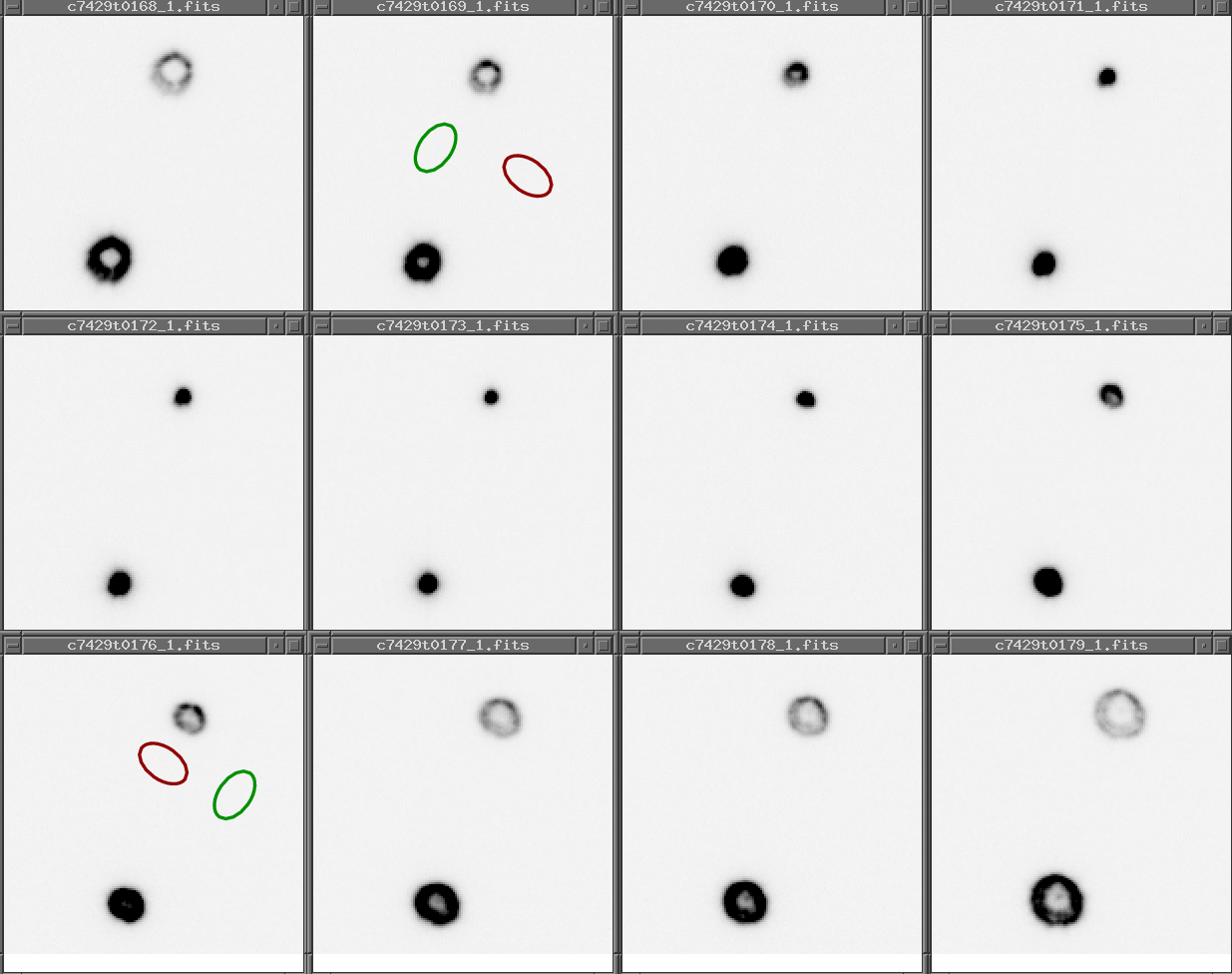
I have drawn two ellipses by hand to guide the eye. The green and red ellipses are identical in shape, but rotated by 90 degrees relative to each other. As you can see, the PSF is somewhat elongated when slightly out of focus, and it does change orientation by about 90 degrees.
I conclude that there is some amount of astigmatism in the optical path, but I lack the knowledge to convert this to some quantitative measure.